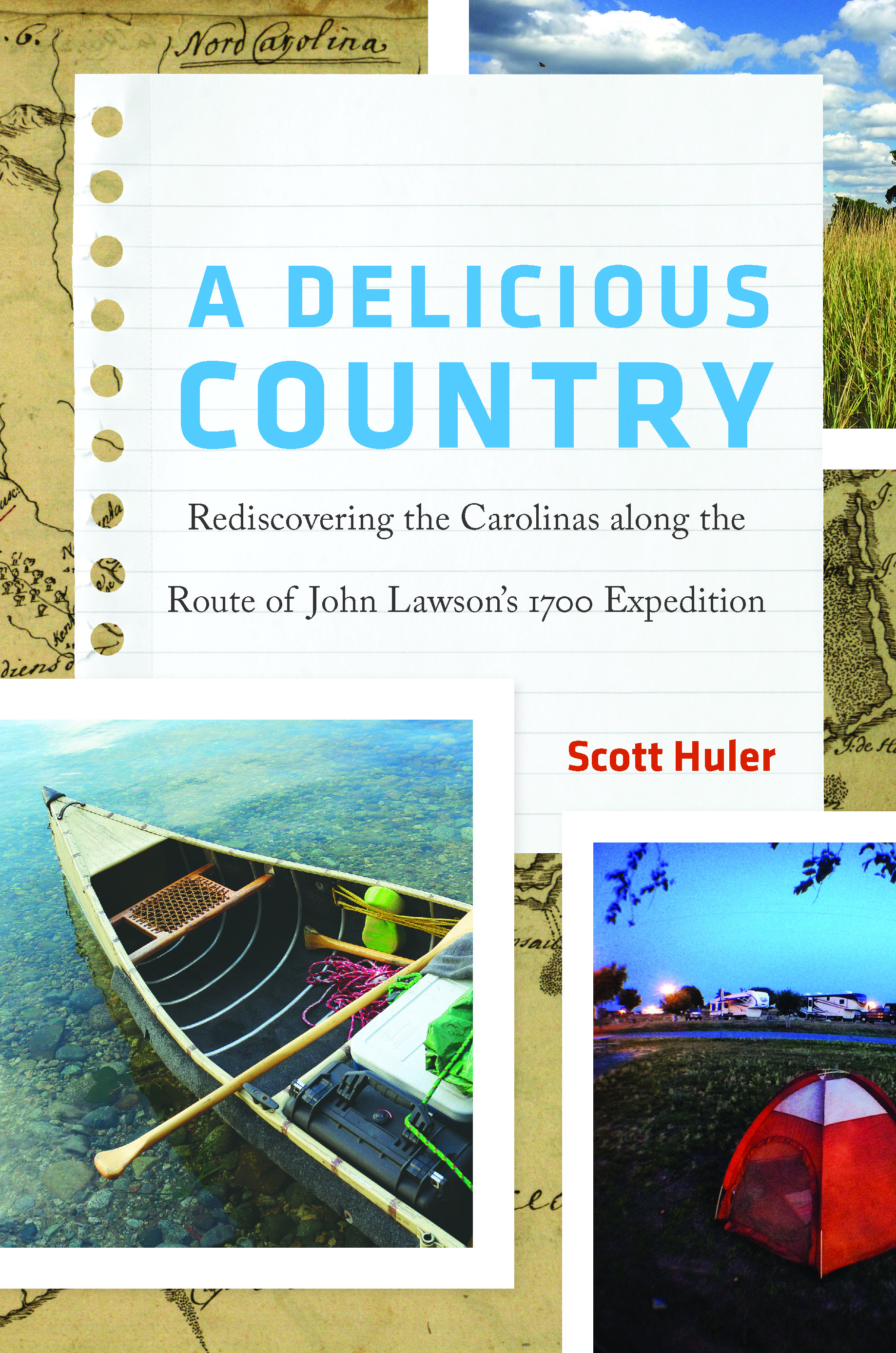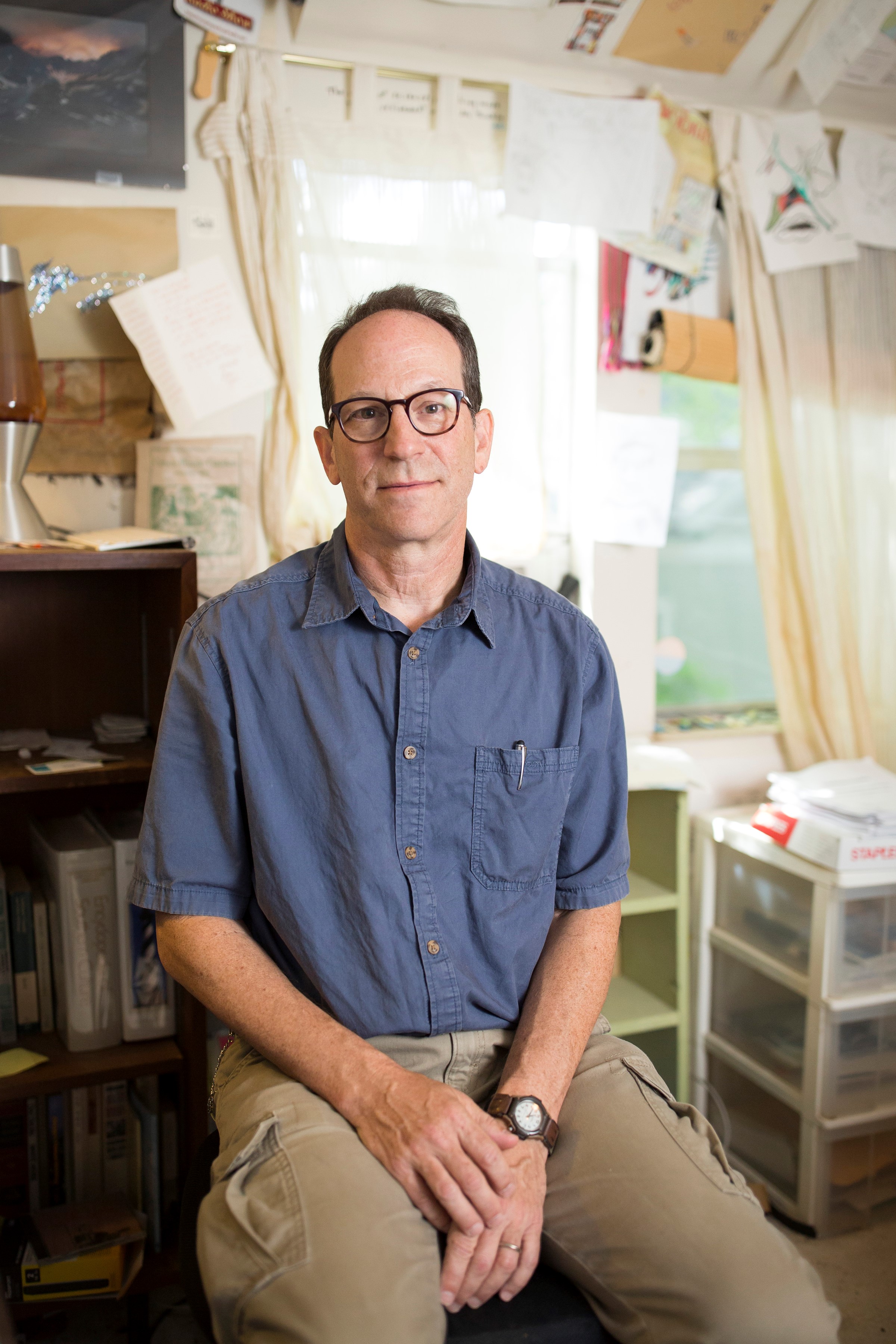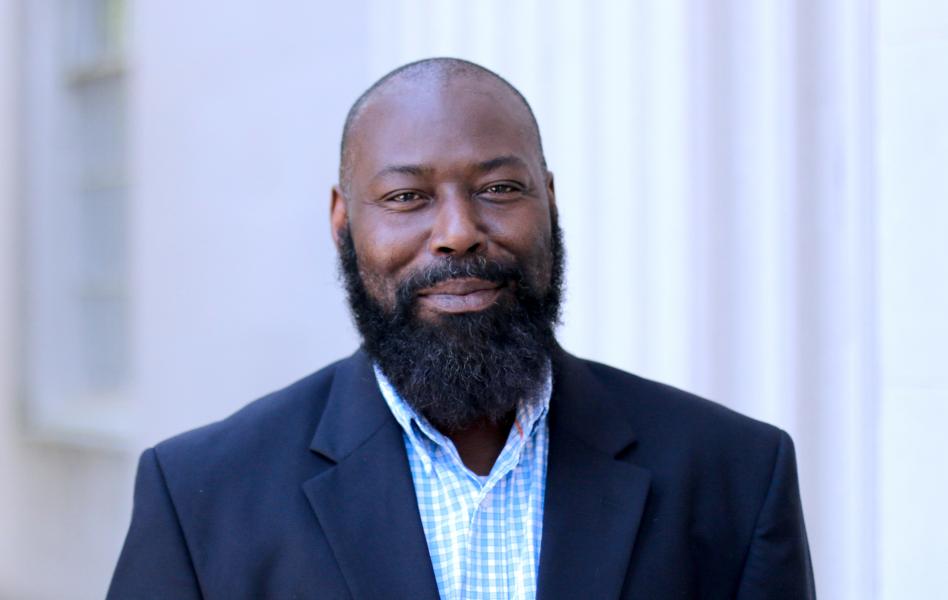Why would anybody want to spend months walking from the South Carolina coast, up through the Piedmont to present-day Charlotte, and then back east to the North Carolina tidewater?
There are two good reasons, one from more than 300 years ago and the other from modern times.
First, a newcomer to North America named John Lawson made this long trip to explore and learn about unfamiliar lands. He made the trip on foot because there was no better way to travel through the endless forests of backcountry Carolinas. Setting off from Charleston in 1700, he was accompanied by several Englishmen and Indian guides. The notes he took became the basis of a book, “A New Voyage to Carolina,” first published in 1709 and still a classic for its rich descriptions of flora and fauna and the conditions of the native peoples who populated the areas he visited.
The more recent traveler, writer Scott Huler, made the long walk because he wanted to follow in Lawson’s footsteps. He says he looked for a modern book that explained where Lawson went and compared it to what is there today. When he found that it had not been done and that no one had even retraced his journey, he thought, “That’s for me!”
Of course Huler could have made the trip of several hundred miles in a day or two in a car on modern roads. But he wanted to go slow, seeing today’s landscapes and peoples at the pace Lawson traveled.
 He shares his travels in a new book, “A Delicious Country: Rediscovering the Carolinas along the Route of John Lawson’s 1700 Expedition,” to be released by UNC Press on March 4.
He shares his travels in a new book, “A Delicious Country: Rediscovering the Carolinas along the Route of John Lawson’s 1700 Expedition,” to be released by UNC Press on March 4.
Like most other readers of Lawson, Huler is impressed with his descriptions and attitudes about the native populations. Lawson visited Sewee, Santee, Sugeree, Wateree, Catawba, Waxhaw, Occaneechi, and Tuscarora Indians. Huler writes, “He stayed in their wigwams, ate their food, trusted their guides. And he emerged with their stories, for some of which he is the only source in the world.”
Lawson, Huler continues, “documented native communities, buildings, agriculture, hunting, dance, trade, and culture through eyes clear, thorough, and respectful. Lawson depicts the natives as fully human—not some subspecies perceived only in comparison to European settlers.”
Lawson’s words were, “They are really better to us than we are to them.”
But Lawson found the native populations to be in a precarious situation. “The Small-Pox and Rum have made such a Destruction amongst them, that, on good grounds, I do believe, there is not the sixth Savage living within two hundred Miles of all our Settlements, as there were fifty Years ago. These poor Creatures have so many Enemies to destroy them, that it’s a wonder one of them is left alive near us.”

Scott Huler (photo by Madeline Gray)
Traveling Lawson’s route through the rural Carolinas, Huler found a surprising and discouraging similarity. The rural and small town landscapes are littered with empty manufacturing plants, corporate farms and forests, empty main streets and deserted houses. Three centuries after Lawson, Huler found that “our world would teeter: a way of life dying in the countryside, implacable new forces once again balancing an entire civilization on a knife edge.”
Setting aside this discouraging report, Huler’s adventures and misadventures on the road entertain and inform. He is the best type of tour guide, one who is well-informed but not at all pompous. His wry, self-deprecating sense of humor helps his serious medicine go down smoothly.
For Lawson, his explorations and the reports about them opened the door to prominence and high positions in the young colony. That success came to a sudden end in 1711 when he was captured and executed by the Indians he had so greatly admired and praised.
 D.G. Martin hosts “North Carolina Bookwatch,” Sunday 11:00 am and Tuesday at 5:00 pm on UNC-TV. The program also airs on the North Carolina Channel Tuesday at 8:00 pm and other times.
D.G. Martin hosts “North Carolina Bookwatch,” Sunday 11:00 am and Tuesday at 5:00 pm on UNC-TV. The program also airs on the North Carolina Channel Tuesday at 8:00 pm and other times.
Related Stories
‹
![]()
One on One: When Do We Change Names and History?Last week the Raleigh City Council removed the historic designation of Wakestone, the former home of Josephus Daniels. That action is just one more reminder of North Carolina’s and the nation’s struggle to find agreement on what people should be honored and what versions of history should be taught in our schools. The unanimous action […]
![]()
One on One: Jim Crow Is Still Alive in North CarolinaUnbelievable when you think about it, how North Carolina maintained its segregated and discriminatory racial system for such a long time. The remnants of what is commonly called “Jim Crow” are still with us, a daily reminder of the horrors of the past. A new book, “Jim Crow in North Carolina: The Legislative Program from […]

One on One: Books for Holiday GivingIf you are worried about holiday gifts or selections for your book club’s reading, here are some good North Carolina-connected books to consider. Three beloved North Carolina authors have new books that would be perfect for fiction fans: Allan Gurganus, author of “The Oldest Confederate Widow Tells All,” gives us a crop of his best […]

One on One: Greek and Hebrew Guides to Our Political DifferencesHow can ancient Greek and Hebrew thinking help us understand why our friends who support other political candidates see things so differently from us? Why are we locked into such different positions? It is dangerous for anyone to try to explain why people support opposing political figures or different political parties or programs. We sometimes […]

One on One: North Carolina's GodfatherDoes North Carolina have a godfather? We would not want our godfather to be anything like Mexican Gen. Salvador Cienfuegos Zepeda, who is called “El Padrino,” which means “The Godfather.” Zepeda was arrested last week and charged with helping a drug cartel smuggle thousands of kilograms of cocaine, heroin, methamphetamine and marijuana into the United […]

One on One: President Trump and Nicholas SparksWhat do President Donald Trump and the lead character of Nicholas Sparks’ latest book have in common? Hint: Walter Reed Medical Center. Both the president and Trevor Benson, the fictional main character in Sparks’ “The Return,” received critically important treatment at Walter Reed. Trump got expert medical care for his coronavirus. Benson, a Navy surgeon, […]

One on One: Fighting for AmericaWe both love America? We would fight for our country. And we would fight to keep it the way we love it. And we would fight to make it the way we could love it more. It is just that we love different Americas. Even before the president was struck down by the coronavirus that […]

One on One: Religion, Too Much or Not Enough?Is Joe Biden too Catholic? Or not enough? Has Donald Trump corrupted the leaders of conservative religious groups? Religion is everywhere, even in four important books featured during the next few weeks on North Carolina Bookwatch. In Charlotte doctor and author Kimmery Martin’s “The Antidote for Everything,” the lead character is not deeply religious. However, […]

One on One: Who Wins the Debate About Debates?What is more interesting than the upcoming debates between candidates for major political offices? Of course, it is the debate about the debates. Some friends, well-informed and experienced in political activities, say the importance of such debates is vastly overrated. For instance, one said the recent first debate between North Carolina U.S. Senate candidates Republican Thom […]

One on One: Losing Randall KenanHe had to tell me that my beloved Uncle Remus was not coming back—ever. Randall Kenan was jovial, kind, and wise, not unlike the Uncle Remus he was taking away from me. Kenan, died last week at a much too early 57. Like Uncle Remus, he was an expert on trickster stories, mainly based on […]
›
 He shares his travels in a new book, “A Delicious Country: Rediscovering the Carolinas along the Route of John Lawson’s 1700 Expedition,” to be released by UNC Press on March 4.
He shares his travels in a new book, “A Delicious Country: Rediscovering the Carolinas along the Route of John Lawson’s 1700 Expedition,” to be released by UNC Press on March 4.

 D.G. Martin hosts “North Carolina Bookwatch,” Sunday 11:00 am and Tuesday at 5:00 pm on UNC-TV. The program also airs on the North Carolina Channel Tuesday at 8:00 pm and other times.
D.G. Martin hosts “North Carolina Bookwatch,” Sunday 11:00 am and Tuesday at 5:00 pm on UNC-TV. The program also airs on the North Carolina Channel Tuesday at 8:00 pm and other times.







